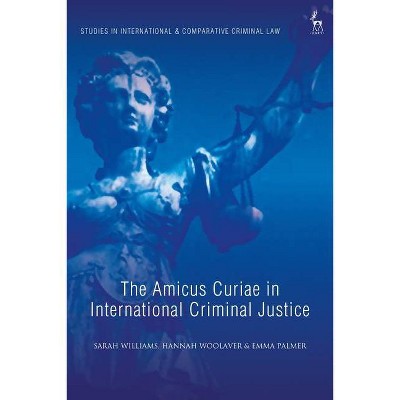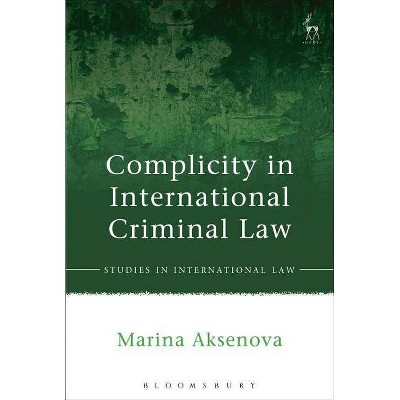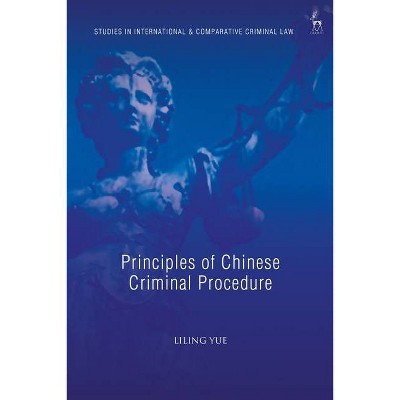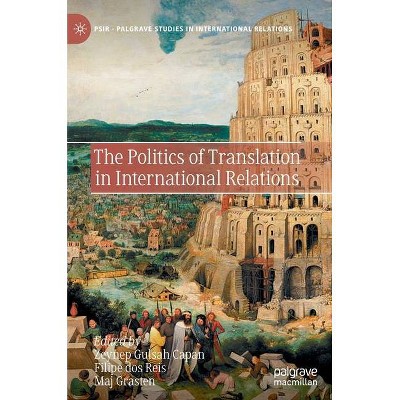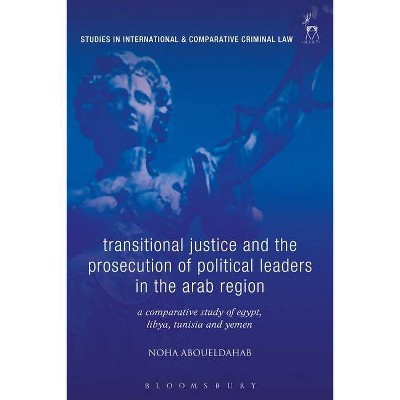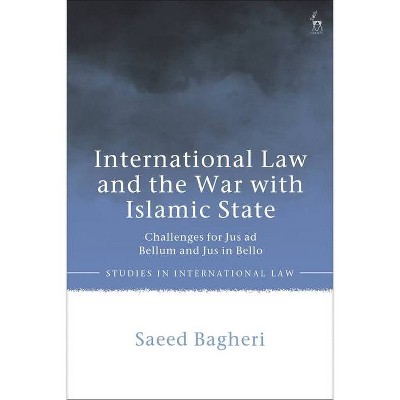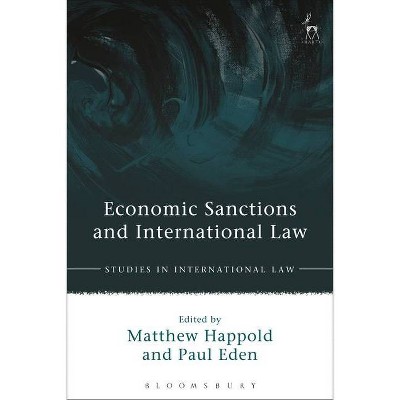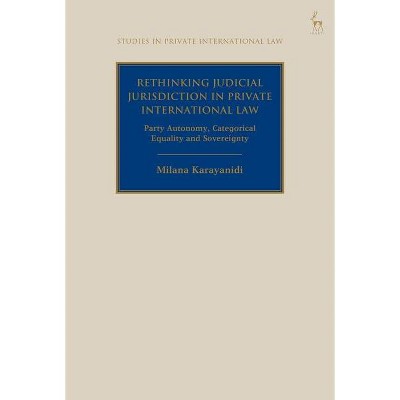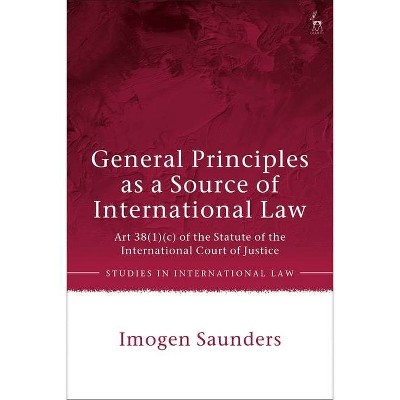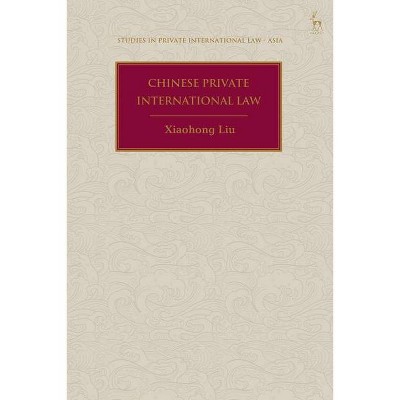The Politics of International Criminal Justice - (Studies in International Law) by Ronen Steinke (Hardcover)
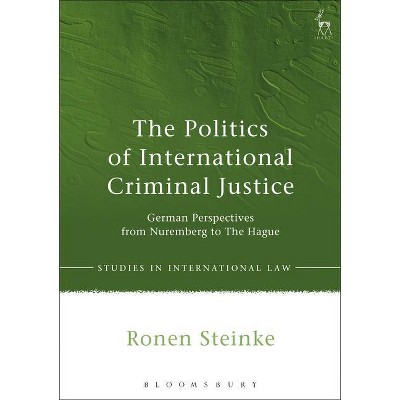
Similar Products
Products of same category from the store
AllProduct info
<p/><br></br><p><b> About the Book </b></p></br></br>To anyone setting out to explore the entanglement of international criminal justice with the interests of States, Germany is a particularly curious, exemplary case. This book draws on government documents and interviews with policymakers, to enrich a broader debate which has to date often been focused primarily on the United States.<p/><br></br><p><b> Book Synopsis </b></p></br></br>To anyone setting out to explore the entanglement of international criminal justice with the interests of States, Germany is a particularly curious, exemplary case. Although a liberal democracy since 1949, its political position has altered radically in the last 60 years. Starting from a position of harsh scepticism in the years following the Nuremberg Trials, and opening up to the rationales of international criminal justice only slowly - and then mainly in the context of domestic trials against functionaries of the former East German regime after 1990 - Germany is today one of the most active supporters of the International Criminal Court. The climax of this is its campaigning to make the ICC independent of the UN Security Council - a debate in which Germany took a position in stark contrast to the United States. This book offers new insight into the debates leading up to such policy shifts. Drawing on government documents and interviews with policymakers, it enriches a broader debate on the politics of international criminal justice which has to date often been focused primarily on the United States.<p/><br></br><p><b> Review Quotes </b></p></br></br><br><p>"This emphasis on political interests and motives is convincing, and it is important in order to help us put a rather idealistic and idealising view on international criminal justice into perspective. (translation from original)" --<i>Historische Zeitschrift, Volume 297, Number 2</i> <p/>"... a very worthy and stimulating contribution to an overlooked subject: the dual and intersecting politics of Germany and international criminal justice, a subject that is sure to appeal to graduate and undergraduate students of the politics of law, and to gain more attention in the coming years as the UN considers expanding its permanent membership to include Germany." --<i>Politics Studies Review, Volume 11, Number 3</i> <p/>"What is of importance to Nigeria and Africa is the historiographic function of the ICC revealed by Steinke." --<i>PM News Nigeria</i> <p/>"The narration of the genesis of the Internationl Criminal Court is nicely comprehensible especially through the interviews which the author has made with scholars of international law such as Ambos, Tomuschat, Kress and Zimmerman, and also with actors in Rome and The Hague such as Kaul, Wilkitzki and Brammertz." --<i>Nuremberg Centre for Human Rights Website</i> <p/>"...fluently written and enthralling to read." --<i>Zeitschrift Integrativer Europaischer Rechtsgeschichte</i> <p/>"This concise and extraordinarily dense investigation is a masterpiece. Steinke reports on and analyses a central chapter of German and European foreign policy after the end of the Cold War, in a manner that is both true to detail and strong in its arguments. This exploration tells us something about German foreign policy and politics of memory, about the relationship between law and politics in international relations, about the politics of international law between power and justice. And all this is fitted into 150 pages." --<i>European Journal of International Law, Volume 23</i> <p/>"The wealth of diplomatic material used by Steinke makes for riveting insights into the structures of international relationships and the discussions within the German government. (translated from the German original)" --<i>Einsicht 08 - Bulletin des Fritz-Bauer-Instituts</i> <p/>"...Steinke's work is a significant and important contribution to a literature which remains thin. Importantly, <i>The Politics of International Criminal Justice</i>... is much more than an assessment of Germany's role and contribution to international criminal law. It is an engaging and eloquent exposition on key developments in the politics of international criminal justice." --<i>Justice in Conflict Blog</i> <p/>"Steinke's book is an excellent analysis of the politics behind Germany's evolving relationship with international criminal justice. The critique of legal debates over Nuremberg in the post-war Federal Republic of Germany contributes to making this sinister episode of German history accessible to an international readership. Most importantly, the study sheds new light on the country's both silent and spectacular u-turn on international criminal justice and offers innovative explanations for Germany's decision to oppose some of their closest allies by supporting an independent ICC." --<i>Journal of International Criminal Justice, Volume 10, No. 4</i> <p/>"This concise and extraordinarily dense investigation is a masterpiece. Steinke reports and analyses a central chapter of German and European foreign policy after the end of the Cold War, in a manner that is both true to detail and strong in its arguments. This exploration tells us something about German foreign policy and politics of memory, about the relationship between law and politics in international relations, about the politics of international law between power and justice. And all of that is fitted into 150 pages." --<i>Frankfurter Allgemeine Zeitung</i></p><br><p/><br></br><p><b> About the Author </b></p></br></br>Ronen Steinke is a lawyer and a political journalist with Süddeutsche Zeitung.
Price History
Price Archive shows prices from various stores, lets you see history and find the cheapest. There is no actual sale on the website. For all support, inquiry and suggestion messagescommunication@pricearchive.us
